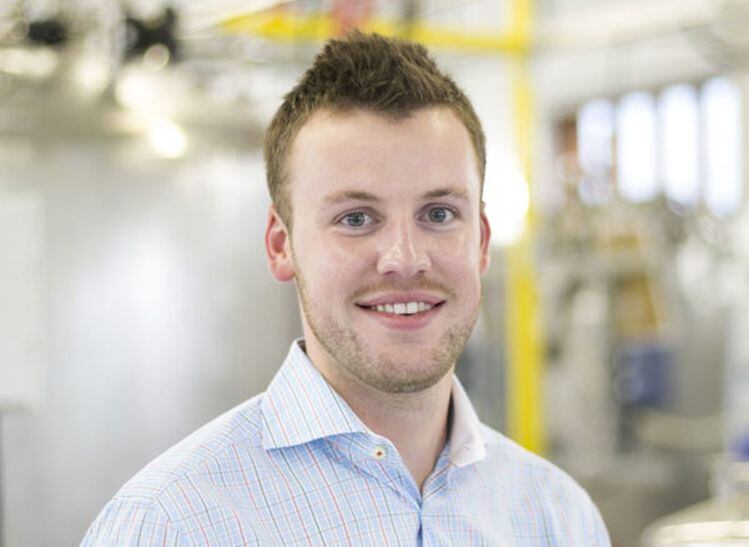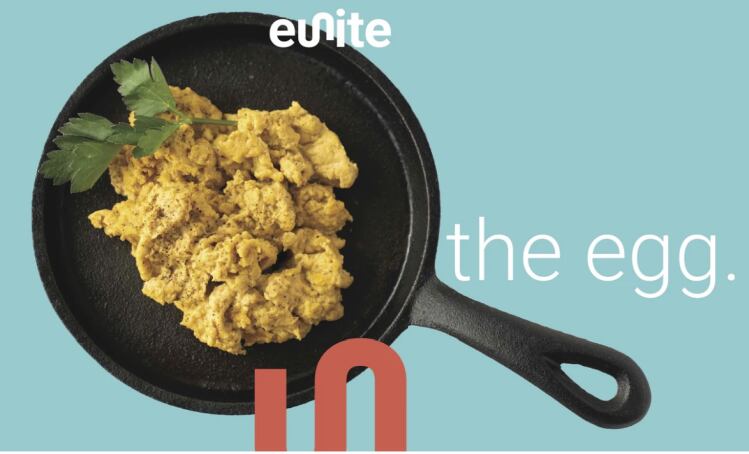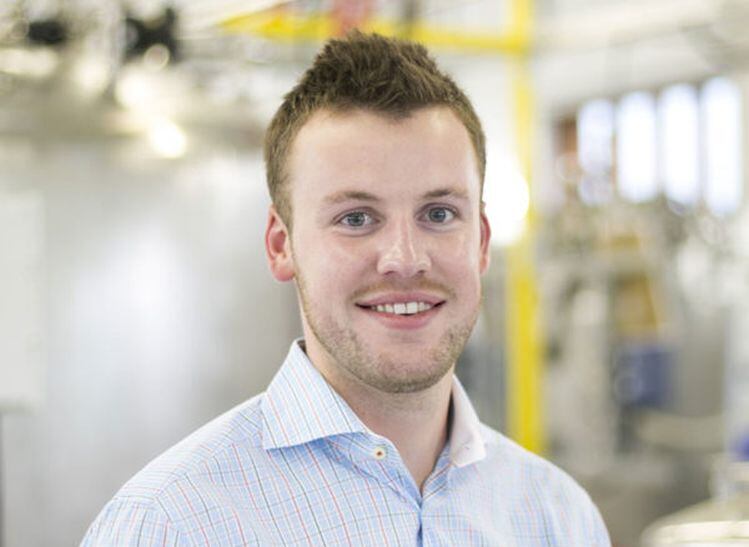While it’s more typical to make a press announcement after raising capital, founder Adam Noble told FoodNavigator-USA, “We wanted to open up the pipeline for the broader investor audience,” explaining that the money would help Noblegen expand its R&D pipeline, hire new talent, ramp up production of food ingredients (initially inhouse in Peterborough Ontario and later via a tolling network of fermentation facilities around the globe), and move into other industries.
‘Instead of a cow that's got an 18-month growth cycle or plants with a six-month growth cycle, euglena is replicating every 12 to 24 hours’
Euglena (pronounced ‘you-glee-nuh’) - “a protist that could also be classified as an algae” - is a single-celled micro-organism naturally rich in protein, beta-glucan, oil, vitamins, and minerals with a unique ability to express properties of plants and animals, that can grow without light in fermentation tanks provided it has a source of carbon and nitrogen, said Noble.
“The two most important aspects from a cost standpoint are the speed of growth and the source of raw materials. We can use inputs similar to what you’d feed an animal, but instead of having a 5-10% conversion efficiency, we can get a 70-80% feed conversion efficiency.
“Instead of a cow that's got an 18-month growth cycle or plants that have a six-month growth cycle, euglena is replicating every 12 to 24 hours.”
Another attractive aspect of Noblegen’s process from a sustainability and efficiency perspective, he said, is that “all of our ingredients are co-products, so there is not a ‘waste stream’ that's generated though our process. It’s also got a minimal water and land footprint, so it really is the most sustainable option in the food industry.”
Beta glucan as an alternative to titanium dioxide and methylcellulose?
By moderating the feedstock and growth environment, Noblegen has been able to coax Euglena gracilis into producing more or less of a given substance via a proprietary technique called ‘facilitated expression’ that doesn’t involve genetic engineering, said Noble, who has secured self-determined GRAS status for the firm’s first ingredient, a protein-rich euglena flour, which is made from harvesting the entire biomass (labeled as ‘euglena flour’ or ‘algal flour’).
However, Noblegen is also ramping up production of beta glucans from euglena that have exciting potential as immune system modulators, but could also serve as replacements for methylcellulose – a binder widely used in plant-based meats, and titanium dioxide - a white food color many firms are also looking to replace, said Noble.
“When we make our protein, we gravity separate off the crystals of it from our biomass, so we're left with a highly purified 98% beta glucan isolate, and in its natural form those crystals are able to reflect light and are able to have the same whitening effect as titanium dioxide.”
He added: “But when you break those crystals, we are then able to use the beta glucan as a functional ingredient to replace things like methylcellulose and gelatin. We’re the first to really unlock the use of it from a functional ingredient standpoint and because of our cost model we can use it in bulk applications that haven't been explored before and help clean up product labels.
“It's really exciting, because beta glucan has only been used as a health supplement in the past, because of how expensive it is to process, but because of our production model, we're able to produce it at a very low cost and allow it to be used across many categories and still offer exciting health benefits.”
Beta glucan as an immunomodulator
The beta glucan produced by euglena is an “unbranched 1,3 beta glucan, and so that means it can be used in supplements for immune modulation,” he added, noting that Kemin has also commercialized a euglena-based beta glucan under the BetaVia brand.
“It’s amazing the clinical work that's been done to show the health benefits.”
Euglena proteins have attractive gelling and foaming capabilities
Next in the pipeline – also under the brand name ‘eunite’ as part of an ‘intel inside’ ingredient branding strategy - are protein concentrates and isolates – launching in 2022, said Noble.
“Euglena protein has a PDCAAS score of 0.96-1.00, which is very unusual for a non-animal protein, it’s more like the proteins you find in egg or milk.
“Euglena proteins have attractive gelling and foaming capabilities and really give us the first opportunity to replace whey protein and some of the most challenging animal proteins in many applications. The fact that we've got a complete amino acid profile and can now create protein that is on par from a cost and nutritional standpoint truly allows CPGs to start transitioning some of the most challenging products.”
Meat analogs: ‘We leave the proteins in their native state, and do not dry or modify them’
The protein concentrates and isolates – which are dry ingredients, he said – will then be followed by a suite of meat, egg, and dairy analogs, which will be wet products with different properties.
He added: “When you extract proteins, you decrease some of the natural functionality, especially when you dry them, so all of our animal analogs will be built from wet proteins. So that means all the natural functionality of what euglena is able to build will be preserved in those products, and we’ll be the first fermentation technology that will be actually building products in a way that’s more similar to a dairy process or animal based process.
“We leave the proteins in their native state, and do not dry or modify them, and are able to build the wet materials directly into meat, eggs, and dairy products.”
For meat alternatives, he said, “It does require [some downstream] processing [such as extrusion] to be able to crosslink the proteins, and that aspect of our technology is proprietary today.”
He added: “We’ll have full GRAS status for our ingredient offerings in 2022 and 2023, and then the wet meat, egg, and dairy analogs will be full GRAS in 2023 and 2024.”
Fats: A more sustainable alternative to palm oil?
The final piece of the food portfolio will comprise functional oils with a variety of melting profiles that could serve as a more sustainable alternative to palm oil - which has been linked to deforestation - in multiple applications, he said.
“Our profile is much more similar to butter, but we can also get a melt profile that's similar to beef tallow. We can also build meat analogs that have that natural fat built right into them, which is an exciting aspect of our platform.”
Noblegen was founded in 2013 (when it went by the name Noble Tech) by Adam Noble, the highest awarded youth scientist in Canadian history, who was still in high school when he and his science partner discovered that a single-celled micro-organism called Euglena can be ‘tricked’ into absorbing nanosilver and other pollutants from freshwater. The discovery helped the pair win a Canada-Wide Science Fair gold medal and a Manning Young Canadian Innovation Award. The following year, Noble created a prototype Euglena-based wastewater treatment system that recovers nanosilver for reuse.



